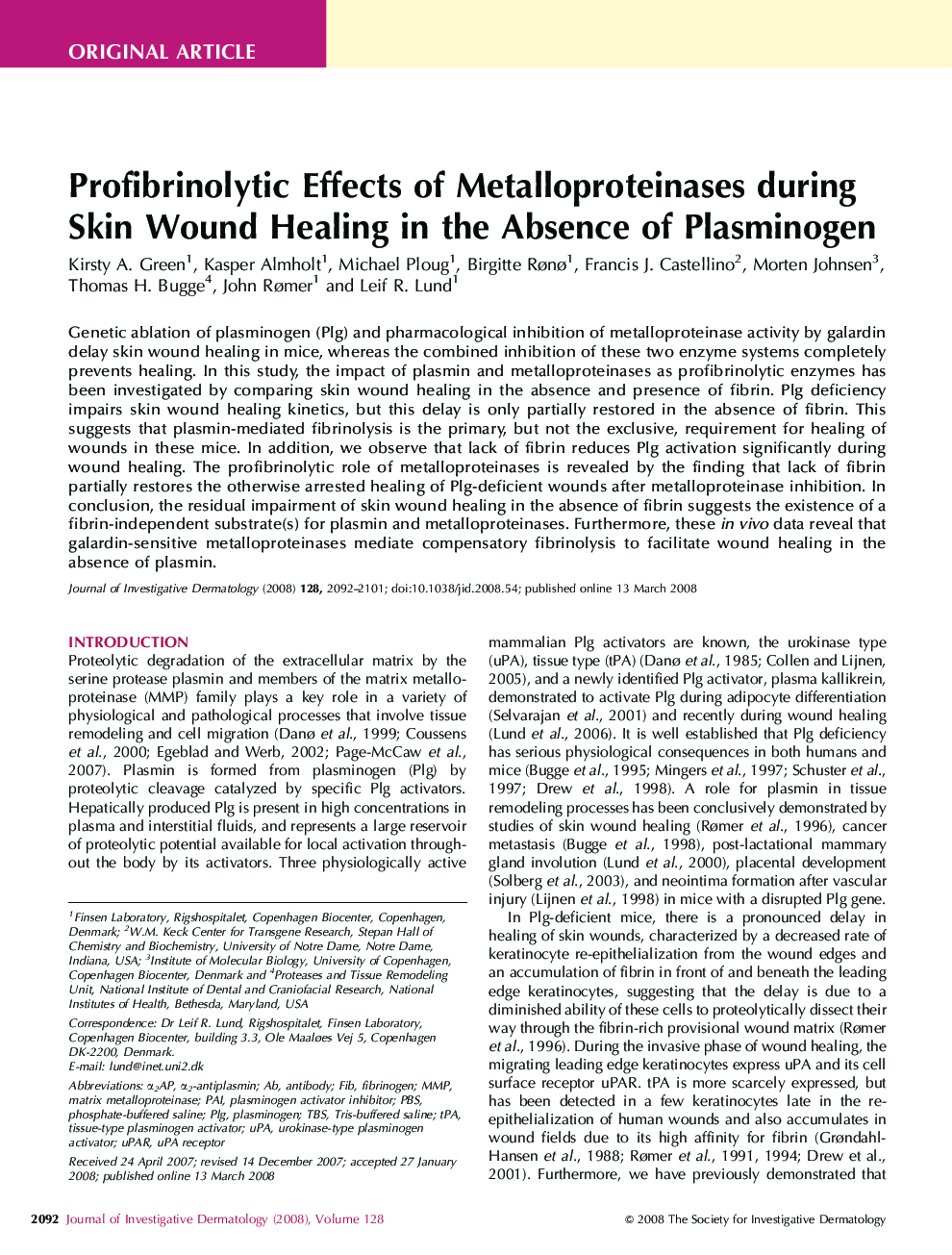| Article ID | Journal | Published Year | Pages | File Type |
|---|---|---|---|---|
| 3217513 | Journal of Investigative Dermatology | 2008 | 10 Pages |
Genetic ablation of plasminogen (Plg) and pharmacological inhibition of metalloproteinase activity by galardin delay skin wound healing in mice, whereas the combined inhibition of these two enzyme systems completely prevents healing. In this study, the impact of plasmin and metalloproteinases as profibrinolytic enzymes has been investigated by comparing skin wound healing in the absence and presence of fibrin. Plg deficiency impairs skin wound healing kinetics, but this delay is only partially restored in the absence of fibrin. This suggests that plasmin-mediated fibrinolysis is the primary, but not the exclusive, requirement for healing of wounds in these mice. In addition, we observe that lack of fibrin reduces Plg activation significantly during wound healing. The profibrinolytic role of metalloproteinases is revealed by the finding that lack of fibrin partially restores the otherwise arrested healing of Plg-deficient wounds after metalloproteinase inhibition. In conclusion, the residual impairment of skin wound healing in the absence of fibrin suggests the existence of a fibrin-independent substrate(s) for plasmin and metalloproteinases. Furthermore, these in vivo data reveal that galardin-sensitive metalloproteinases mediate compensatory fibrinolysis to facilitate wound healing in the absence of plasmin.
